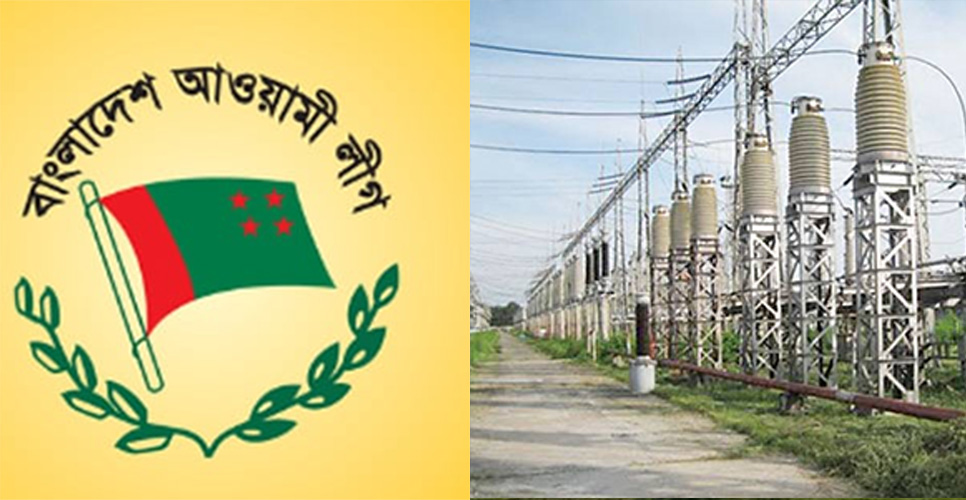
By Syed Shukur Ali Shuvo
DHAKA, Dec 15, 2021 (BSS) - Bangladesh achieved tremendous success in
ensuring electricity across the country as the political commitment of Awami
League (AL) government led by Prime Minister Sheikh Hasina reached the
electricity to 99.75% people from less than 15% in 50 years of independence.
Power division officials said less than 15 percent people inherited
electricity coverage after independence while it was 47 percent in 2009.
After coming to the power for the second term in 2008, the AL government
dreamed of electrifying every household in the country.
AL's that dream prompted them to take huge initiatives for the development
of power and energy sector, covering 99.75 percent people with the
electricity, the officials said.
In 2009, the power generation capacity of the country was 4,942 MW which
now has increased to 25,235 MW.
The announcement of Prime Minister Sheikh Hasina 12 years ago to ensure
cent percent electricity for all people seemed to be a dream, but, the power
division under its state minister Nasrul Hamid almost achieved the target.
The worthy daughter of Father of the Nation Bangabandhu Sheikh Mujibur
Rahman has been able to make incredible development in the power and energy
sector in the way shown by her father, taking various initiatives for power
sector in last 12 years.
Father of the Nation Bangabandhu Sheikh Mujibur Rahman also had undertaken
various initiatives to develop the country's energy sector soon after the
independence.
A historic decision by Bangabandhu had pushed the country to start a
journey for ensuring energy security after Bangladesh was liberated.
"August 9, 1975 was the historic day for the country as Bangabandhu
purchased five gas fields from multinational oil drilling company, Shell Oil
Company, paying very little," State Minister for Power, Energy and Mineral
Resources Nasrul Hamid told BSS today.
He said only 4.5 million pound sterling (Tk. 17-18 crore of that period)
was paid to get Bakhrabad, Titas, Rashidpur, Kailashtila and Habiganj gas
fields state-owned.
Talking to BSS, Energy expert and International Energy Consultant Khondkar
Abdus Saleque Sufi said Bangabandhu believed that sustainable self reliant
energy sector would be essential for economic emancipation of the country.
"With creation of BOGMC (Later BOGC and BMDC), BPDB and BWDB were the
outcome of his (Bangabandhu) extensive home works," he said.
Bangabandhu's vision was to explore and leverage petroleum and mineral
resources by what in his term "Golden Sons of Golden Bengal," he added.
The expert said now Bangabandhu's worthy daughter and visionary leader of
Bangladesh Prime Minister Sheikh Hasina has been working relentlessly to
ensure the country's power and energy security by fulfilling her father's
dream.
The Father of the Nation nationalised five major gas fields from IOC,
started commencement of offshore exploration of petroleum and engaged his
advisors for development of the sector, Sufi said.
Since 2010, the government has been observing the August 9 as the National
Energy Security Day.
AL government's lone effort leads the dream of ensuring electricity in all
areas of the country into the reality as envisioned by Father of Nation.
Prime Minister Sheikh Hasina is committed to ensuring electricity for all
within 2021 as Bangladesh is celebrating the birth centenary of Father of the
Nation Bangabandhu Sheikh Mujibur Rahman coinciding with the 50 years of
independence.
Bangladesh is now very close to fulfilling the prime minister's commitment.
Talking to BSS, Director General of Power Cell Engineer Mohammad Hossain
said Bangladesh is now very close to ensure electricity for all and within
the 'Mujib Year', the country will able to achieve the target.
"At first, I want to remember the Father of the Nation Bangabandhu Sheikh
Mujibur Rahman who identified the power sector as a priority for country's
economic emancipation," he added.
According to the ministry, initially Bangabandhu started works of coal and
hard rock mining, setting up power plants at Ashuganj, Ghorashal and
Siddhirganj, arranging training for human capital in Algeria and Indonesia,
concluding agreements with the then Soviet Union, Germany for energy and
power sector development from 10 January1972 to August 15, 1975.
According to power cell data, currently the power connections increased to
4.14 crore households which was only 1.80 crore in 2009.
Now, the number of power plants reached 146 from only 27 in 2009.
In 1996, coming to the power, Prime Minister Sheikh Hasina took several
initiatives to increase power generation capacity.
Several organizations were formed by dividing PDB for creating competition
among those aimed at reducing the system loss.
In 2001, the power generation capacity was 4,300 MW. But, on the same
year, the BNP-Jamaat came to the power and in 2009, the power generation
capacity reduced to 3,200 MW.
The state minister said the government has already taken all sorts of
initiatives, including installation of home solar systems and other renewable
electricity generation, to provide electricity facility to rest of the remote
areas which is out electricity coverage.
Earlier, Chairman of the Khagrachari Hill District Council Mongsueprou
Chowdhury told BSS that development is visible in every spare of life among
the hilly people as tremendous development works are being done in the three
hilly districts, Khagrachari, Rangamati and Bandarban.
As part of the global campaign to expand renewable energy side by side
reduction of green house gas, the government has been encouraging power
generation from renewable sources.
Now the country is generating 730.62 MW electricity from renewable energy
sources with installation of 60 lakh Solar Home Systems (SHSs) across the
country.
The renewable energy production capacity is 730.32 MW under the
Sustainable and Renewable Energy Development Authority (SREDA), of which
496.39 MW comes from solar power.
The government has brought two crore marginal people under electricity
coverage through Solar Home System.
In context of the government campaign for expansion and installation of
renewable energy sources in the country, the ratio of renewable energy source
will be 40 percent in power generation in future.